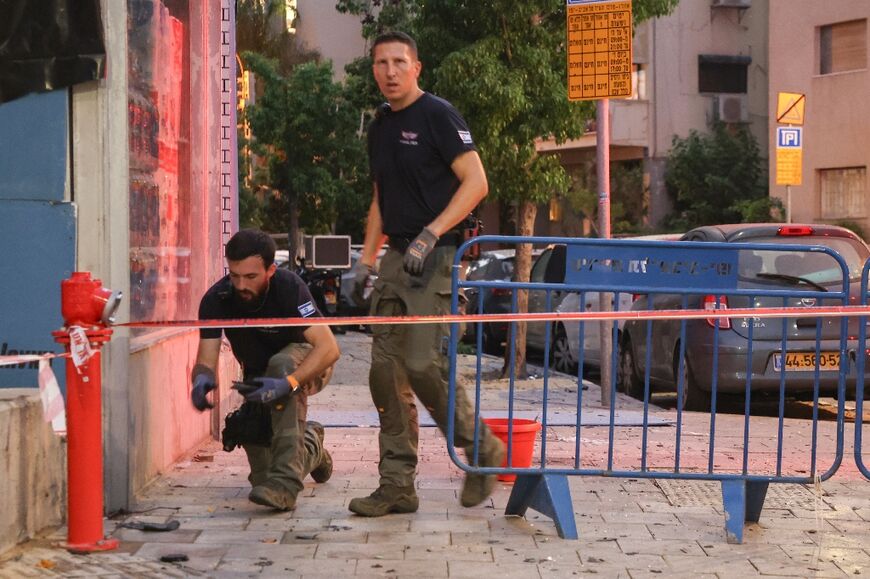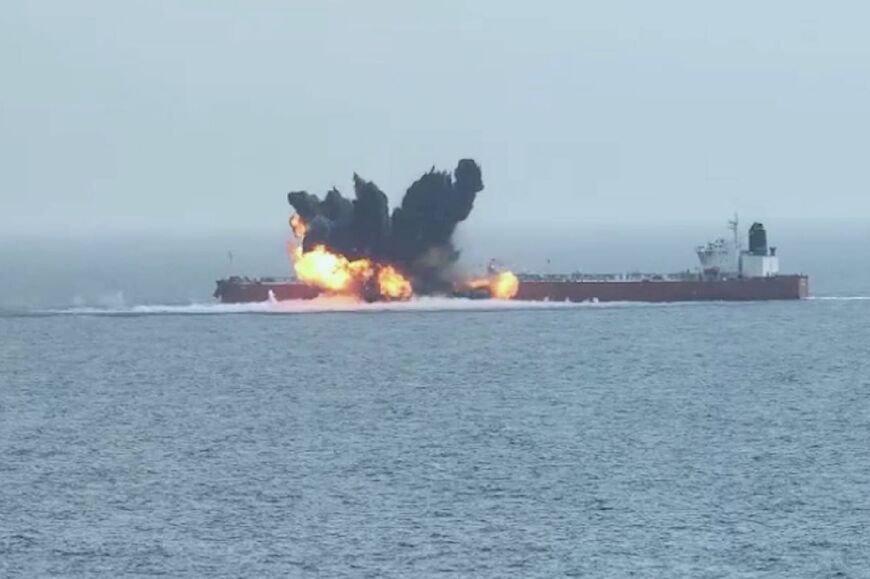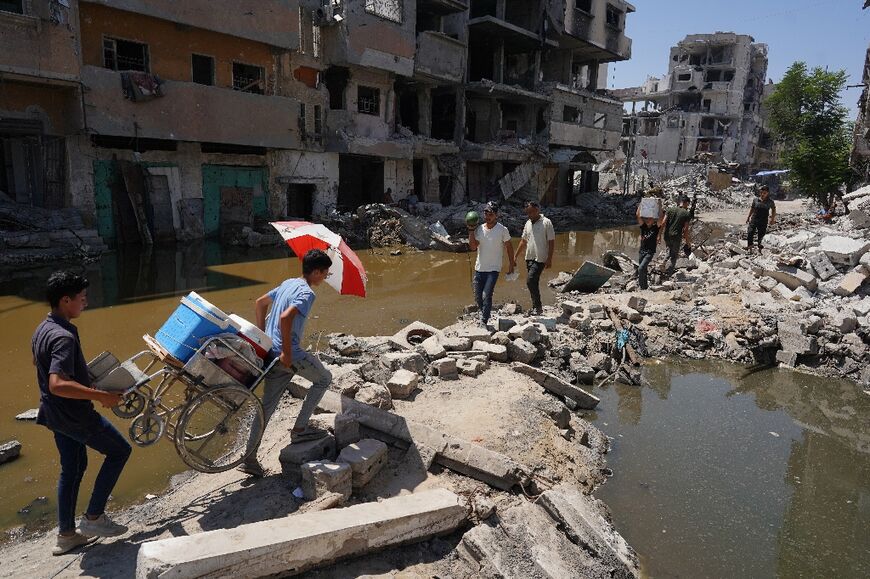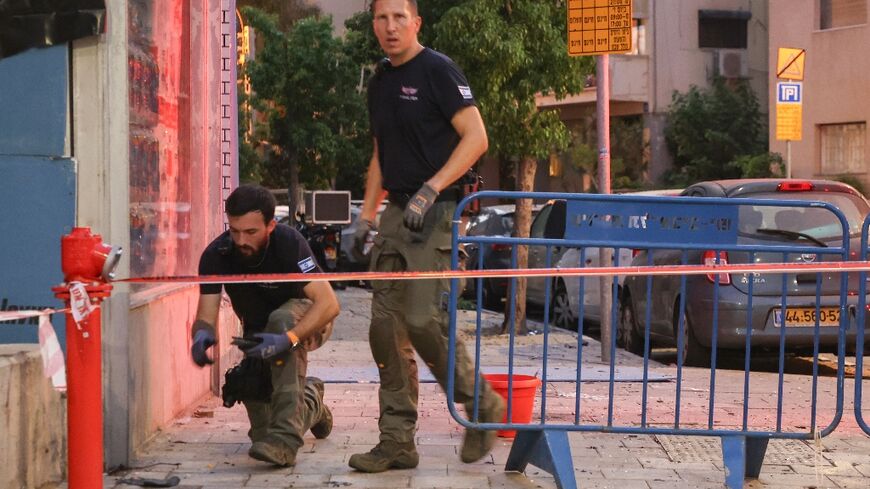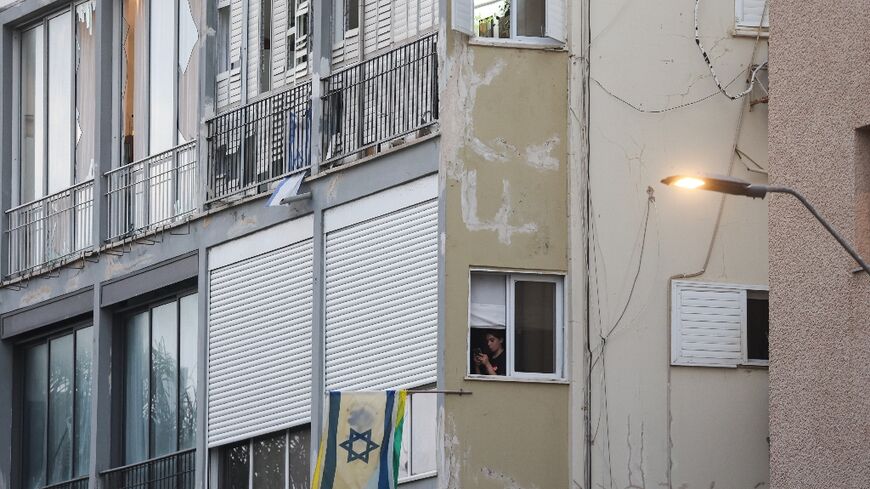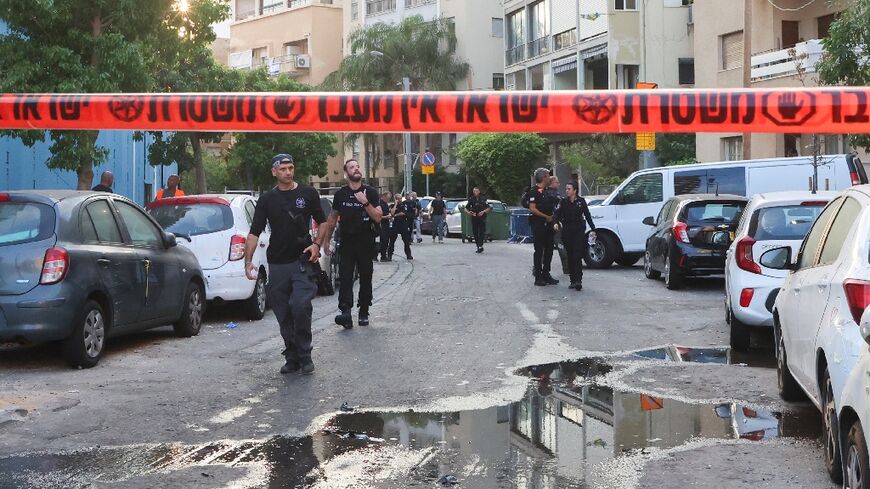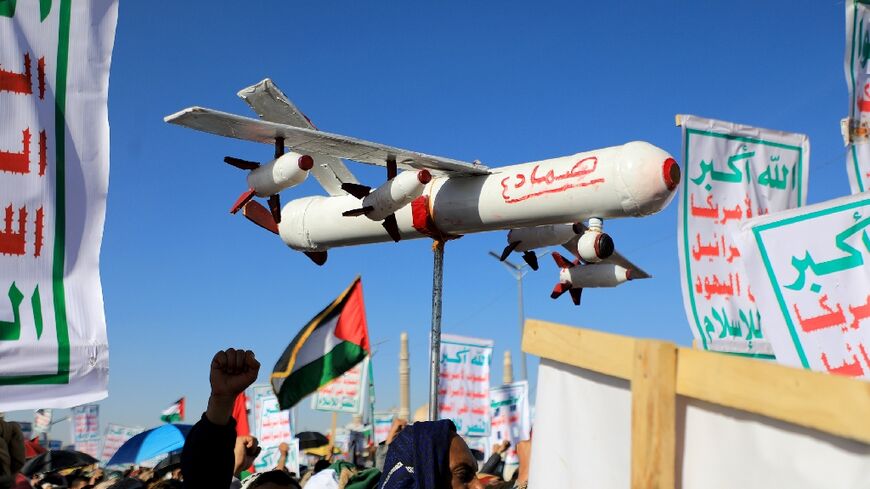Israel threatens reprisals for deadly Yemen rebel drone strike
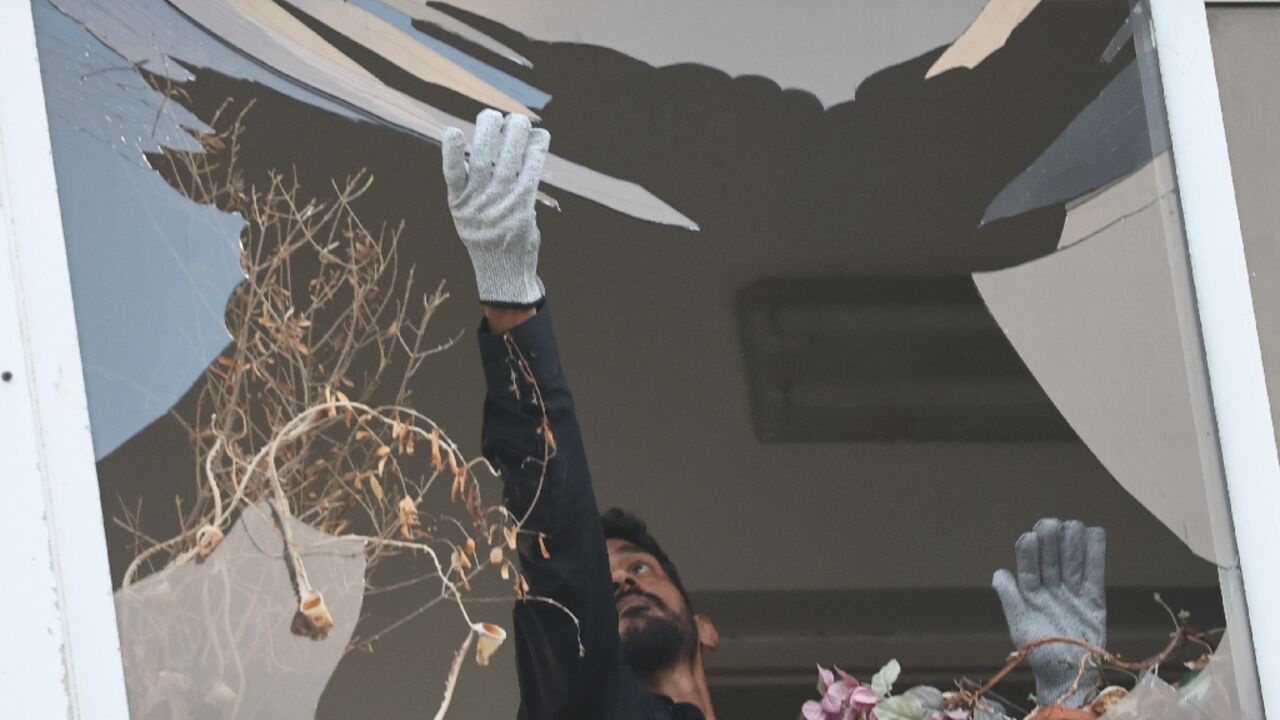
Israel threatened reprisals Friday after a drone claimed by Yemen's Huthi rebels penetrated its vaunted air defences and killed a civilian in a Tel Aviv apartment building near a US embassy annexe.
The attack drew condemnation from UN chief Antonio Guterres and an appeal for "maximum restraint" to avoid "further escalation in the region".
The pre-dawn strike came hours before Israel suffered another blow, a ruling by the UN's top court that its occupation of the Palestinian territories was "illegal" and needed to end as soon as possible.
The advisory opinion of The Hague-based International Court of Justice is not binding, but it comes amid mounting international condemnation of Israel's handling of its war on Hamas in Gaza.
The office of Palestinian president Mahmud Abbas hailed the court's decision as "a victory for justice". Hamas said it puts "the international system before the imperative of immediate action to end the occupation".
But Israeli Prime Minister Benjamin Netanyahu, who has overseen a major expansion of Jewish settlements in the occupied West Bank, insisted: "The Jewish people are not occupiers in their own land."
The Huthis are one of a number of Iran-backed armed groups around the Middle East that have claimed drone and missile attacks on Israel in retaliation for the Gaza war.
The group, which controls swathes of Yemen, including much of its Red Sea coast, has previously claimed attacks on Israeli cities including Ashdod, Haifa and Eilat, but Friday's strike appears to be the first to breach Israel's sophisticated air defences.
The Huthis fired at Tel Aviv a "new drone called 'Yafa', which is capable of bypassing the enemy's interception systems", their spokesman Yahya Saree said.
An Israeli military official, who spoke on condition of anonymity, said a "very big drone that can travel long distances" was used in the 3:12 am (0012 GMT) attack.
He said the drone was detected but due to "human error" the alarm was not raised in time, and it slammed into an apartment building.
Military spokesman Daniel Hagari said Israel believed the drone used was Iranian-made and upgraded so it could reach Tel Aviv from Yemen -- at least 1,800 kilometres (1,100 miles) away.
Medical services said one civilian was killed and four people suffered "relatively minor" injuries.
Defence Minister Yoav Gallant vowed revenge.
"The security system will settle the score with all who try to harm the state of Israel, or sends terrorism against it, in a decisive and surprising manner," he said in comments posted on social media platform X.
- 'Everything blew out' -
In grainy security camera footage, the buzz of what appeared to be the drone was followed by an explosion that shook the building and set off car alarms.
The blast occurred about 100 metres (yards) from a US embassy annexe, said an AFP journalist who saw broken windows along the street lined with apartment blocks.
"It woke me up because the vibration of the sound was like a 747 (jet) coming in," said Kenneth Davis, an Israeli who was staying in a hotel opposite the building which was hit.
"And then the explosion... everything blew out in the room," he told AFPTV.
Since November, the Huthis have also carried out dozens of drone and missile attacks on shipping in the Red Sea and Gulf of Aden that they claim is Israeli-linked.
The United States and Britain launched a campaign of air strikes in January to deter the attacks on shipping.
The Gaza war was triggered by Hamas's October 7 attack on Israel which resulted in the deaths of 1,195 people, mostly civilians, according to an AFP tally based on Israeli figures.
The militants also seized 251 hostages, 116 of whom are still in Gaza, including 42 the Israeli military says are dead.
Israel's retaliatory campaign has killed at least 38,848 people in Gaza, also mostly civilians, according to data from the health ministry in the Hamas-ruled territory, where fighting raged on Friday.
- WHO reports no polio cases -
Residents said clashes were heard between Palestinian fighters and the Israeli army, with explosions and shelling in the Tal al-Hawa district of Gaza City.
The war has destroyed much of Gaza's housing and other infrastructure, leaving virtually the entire population displaced and short of food and drinking water.
Many are living in unsanitary conditions. Health authorities in Gaza and Israel said on Thursday that poliovirus had been detected in Gaza sewage samples.
The World Health Organization said on Friday that no cases of the highly infectious disease had been discovered in Gaza so far.
burs-kir/dcp



